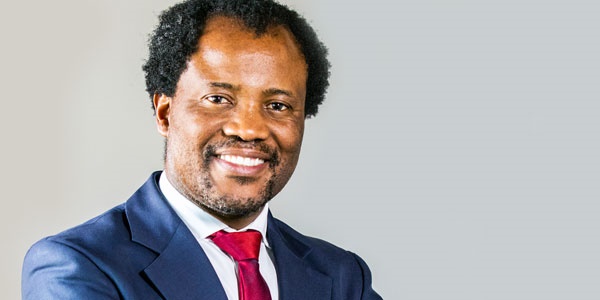


Incoming Wits Vice-Chancellor Zeblon Vilakazi (@Wits_News, Twitter)
- Professor Zeblon Vilakazi is taking over the hot seat at Wits in 2021 from Professor Adam Habib.
- Vilakazi is excited, but also anxious about what the future holds.
- He believes the university has transformed, but more work needs to be done.
If there is an issue that incoming Wits Vice-Chancellor Professor Zeblon Vilakazi is looking to face and challenge head on, when he steps in next year, it will be inequality and exclusion, he said.
Professor Vilakazi was speaking to News24 on Friday afternoon after the institution’s council announced on Thursday that he would become the university’s 15th Vice-Chancellor, taking over from Professor Adam Habib.
Habib departs at the end of the year.
Vilakazi said the university had gone a long way in taking steps towards increasing diversity and transformation, but it is still faced with challenges which would need to be worked on going into the next decade.
“The issue of inequality is something that I think will be a big problem and something I need to pay attention to. If I can predict any issue of the future, it’s the issue of inequality and exclusion.
“There are of course [also] challenges towards working on a short, medium and long term – on staff, in particular, the academic faculty. I am talking about professors here – to have a much higher proportion of professors like myself and, of course, getting more female professors in areas where women are not well represented, like my area,” he said.
He added that he would also be looking at working towards ensuring the culture of the institution would be one reflective of the broader society, and it becoming as inclusive as possible.
READ | Adam Habib announces resignation as Wits’ vice-chancellor
“A university, like Wits, has a particular history and also has a particular tradition and set of values. Some of which are very good [and] some of which need to be changed and adjusted to the new era.
“It is not an overnight process. It is a series of conversations that will take place over a long period, that will ensure that everyone feels welcome, as long they meet the requirement and as long they are aligned to the mission and vision of the university,” said Vilakazi.
Although he has much planned, the professor, who is currently the Vice-Principal and Deputy Vice-Chancellor for Research and Postgraduate Studies, said he is also anxious because every appointment comes with new challenges.
He said when his appointment was announced on Thursday, he immediately started thinking about what the future holds as he leads the institution towards a new decade.
“Obviously, start thinking about the future. Yes, it is exciting. You get nervous because to undertake any job you need that element of nervousness. If you don’t become nervous, then you don’t take the job seriously. You need that sense of urgency that makes you perform at your best,” he said.
READ | Racial tensions flare up ahead of new Wits vice-chancellor’s appointment
But he is ready for anything.
Reflecting on past protests during the last decade, including the Fees Must Fall and Rhodes Must Fall movements, Vilakazi said he believed lessons had been learned about the reasons behind such powerful movements.
Social media presence
What is, however, important to him is continuous engagement with all parties involved in the institution – students, student leaders and staff – to address such issues, he said.
“In the next decade, new challenges will come. I don’t know what they are and I don’t think I can predict that I will have the means at the time to predict what they will be. I cannot predict what’s going to happen. We have had the issues of statues and inequalities.”
Outgoing Wits Vice-Chancellor Adam Habib is known for his robust engagement on social media platforms, particularly on Twitter.
Vilakazi said his predecessor is more of an expert on public intellectual engagement, something he says he is not generally good at.
He said he would try to think of his own kind of public outreach strategy.
“Obviously, Professor Habib was a political scientist and so he could speak strongly about an area of his expertise in terms of public, political discourses.
“As a scientist, I will obviously stand up on matters that relate to science and how to improve society using science.”
Laughing, he added:
To answer your question, I won’t be as visible as Professor Habib, much to your disappointment

